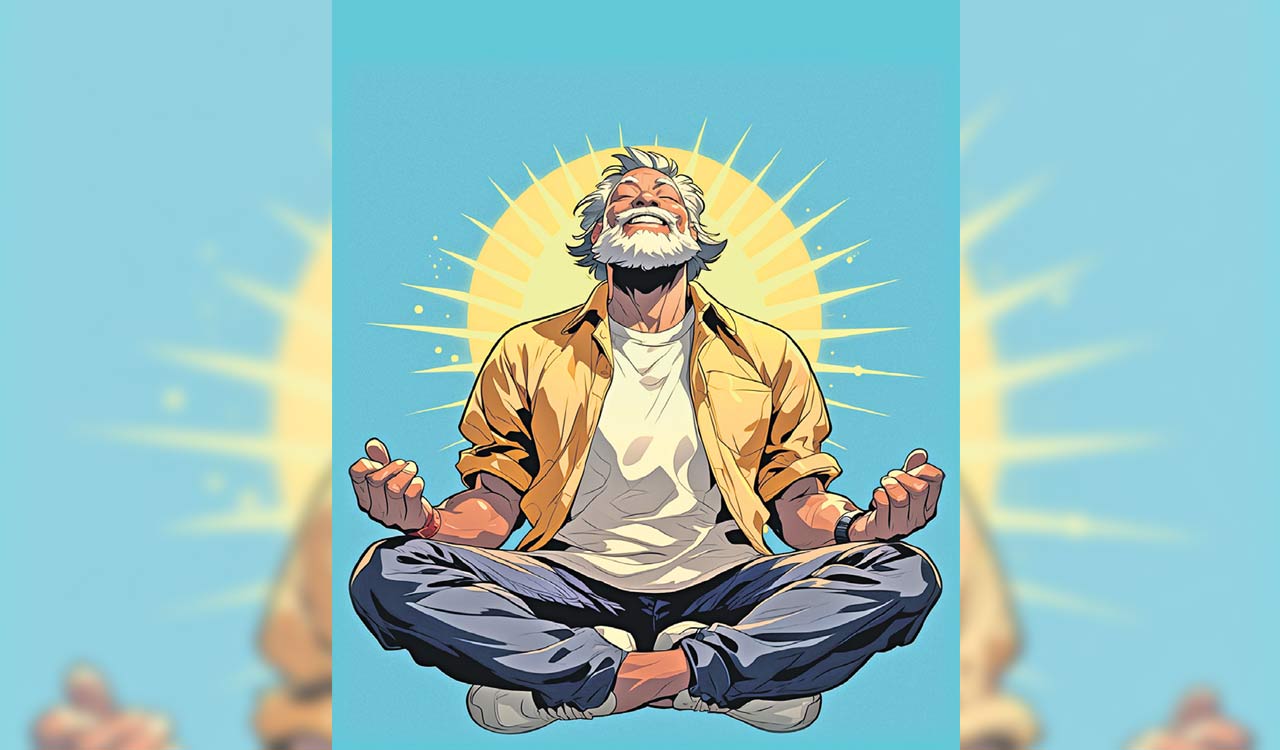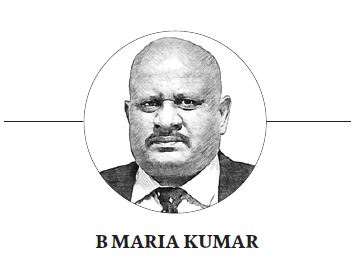Opinion: Wild mind Vs mild body
Should our ultimate focus be mind-oriented or body-oriented?

By B Maria Kumar
A few weeks ago, US President Joe Biden withdrew from the 2024 presidential election, scheduled for November 5th, sparking widespread debate. The uncertainties about his alleged age-related cognitive decline have raised questions about whether the elderly are fit to hold the highest office, particularly concerning national socioeconomic security and foreign policy. Notably, former President Donald Trump, the current Republican candidate, is also of a similar age, being only slightly younger than Biden by just over three years.
As the incumbent Biden has been markedly scrutinised for his sometimes erratic statements and seemingly confused movements, Trump too has faced criticism in the past for his controversial nonverbal gestures and spoken behaviour. This brings into focus the more challenging problem: does age truly matter when it comes to performing the most sensitive roles such as being the key decision-maker in the government and commander-in-chief of a superpower like the United States?
Cognitive Fitness
When examining the physical and psychological abilities of the elderly in crucial positions, we also happen to come across examples of younger individuals who have fared poorly in top corporate or highest public offices. Conversely, there are numerous instances where nonagenarians have excelled in managing the affairs of their nations to the full satisfaction of their people. To illustrate, Mahathir Mohamad became the Prime Minister of Malaysia at the age of 94 and remained active in politics even now well into his 99th year. His cognitive fitness has never been questioned throughout his over seven-decade-long public life. Similarly, Queen Elizabeth II was a capable monarch during her nonagenarian years as well, serving until her passing nearly two years earlier at the age of 96.
These living stories, both of late and present, remind me of my own experiences with nonagenarian friends in my social circle, particularly in observing their cognitive fitness. One such friend was Chittoori Prabhakar Chaudhary, who was elected to the Madras Legislative Assembly on a Communist Party of India ticket in 1952, during the first elections after Indian independence. Despite knowing him for over a decade, I never felt that his 90-plus years were any different from his youth as regards cerebral agility. He was vibrant in his daily routine, often surrounded by people at party meetings. Of course, he maintained a regular regimen of physical activity and a balanced diet. If it weren’t for Covid infection, he might not have passed at the age of 99 in 2022.
Another senior friend who continues to astonish with his sharp discernment at 94 is Prof MN Bhushi. An avid reader and a humanistic writer, he is frequently on the move, attending social events and academic sessions, where he shares his experiential wisdom with younger generations. These encounters recall not to hastily judge all elderly people as suffering from declining mental faculties. Likewise, we shouldn’t assume that all young and middle-aged individuals possess flawless common sense or intellect.
Common Mistake
We often mistake the duration of time older individuals take to make decisions as a sign of cognitive deficiency, which isn’t always the case. According to the latest research report published on August 12, 2024, in Physical Review E, a team led by Samantha Linn, a mathematician at the University of Utah, found that slow decision-makers often make better choices. This could be because older people take longer to decide due to their vast knowledge and experience, which require more time to process. So, what might appear as hesitation could actually be a sign of careful and informed decision-making.
On the flip side, the same research highlights that those who make quick decisions are often prone to biases, as they tend to favour options that align with their preconceived notions. This tendency is common among most of younger individuals who may be less knowledgeable and experienced, leading to poor decisions. Therefore, it’s unwise to make sweeping judgments based solely on age, as a number of factors and possibilities are at play.
Historical records from the Second World War show that younger parliamentarians and senators in the UK and US wanted their nations to eagerly join the war, whereas older members were reluctant, driven by the simple insight that their younger sons would have to fight on the front lines. Sadly, when we look at the ongoing conflicts and wars across the globe, it is evident that many of the decision-makers escalating these military engagements today are older individuals.
Sound Mind, Body
Why is there no uniformity in chronological age when it comes to the inconsistencies of rational choices? Emerging discoveries linking brain mechanisms to the body’s metabolic status offer a clearer explanation of these underlying catalysts. This idea echoes an ancient Latin maxim, “Anima Sana in Corpore Sano (ASICS)” (a sound mind in a sound body), which was famously adopted by Japanese entrepreneur Kihachiro Onitsuka many decades ago for his shoe company ASICS, aiming to uplift the spirits of post-war Japanese youth.
Scientific research now suggests that cognitive fitness, regardless of age, may heavily depend on the health of various body parts like the heart, liver, bones, muscles and the immune system. Studies conducted by University College London, the University of Melbourne and the University of Cambridge specifically assert that poor physical health can alter brain structure, leading to mental health issues such as depression, anxiety, neuroticism and so on. These findings highlight the crucial importance of somatic well-being.
While physical, mental and social healths form a three-in-one entity, the body holds a uniquely superior value. Yet, we often witness the unpredictable role of ego — a critical psychological component — in not only maintaining overall health but also adversely influencing society’s safety and security on a broader scale. Although ego is essential for basic survival, it can be self-destructive when triggered by irrational sentiments. In the long run, a sick body can tame the wild mind, setting off a chain of consequences through regrets and remorse that actually starts from the body’s fragile condition regardless of its age. And this raises a pivotal dilemma — should our ultimate focus be mind-oriented or body-oriented?

(The author, IPS (Retd), is a winner of National Rajbhasha Gaurav Award for 2022-23)
Related News
-
Couple elected as chairperson and vice-chairperson of Nirmal Municipality
5 hours ago -
Telangana municipal polls: BRS pockets 18 municipalities
6 hours ago -
BJP draws sharp criticism for meeting Congress leaders in Hyderabad
6 hours ago -
Inorbit Mall Cyberabad hosts Valentine specials, interactive games and live performances
6 hours ago -
Jangaon chairperson election postponed amid high drama
6 hours ago -
Editorial: Showcasing India’s tech prowess
6 hours ago -
Health Minister orders suspension of absent Jogipet doctors
6 hours ago -
Opinion: India’s new labour codes prioritise capital over labour
6 hours ago




